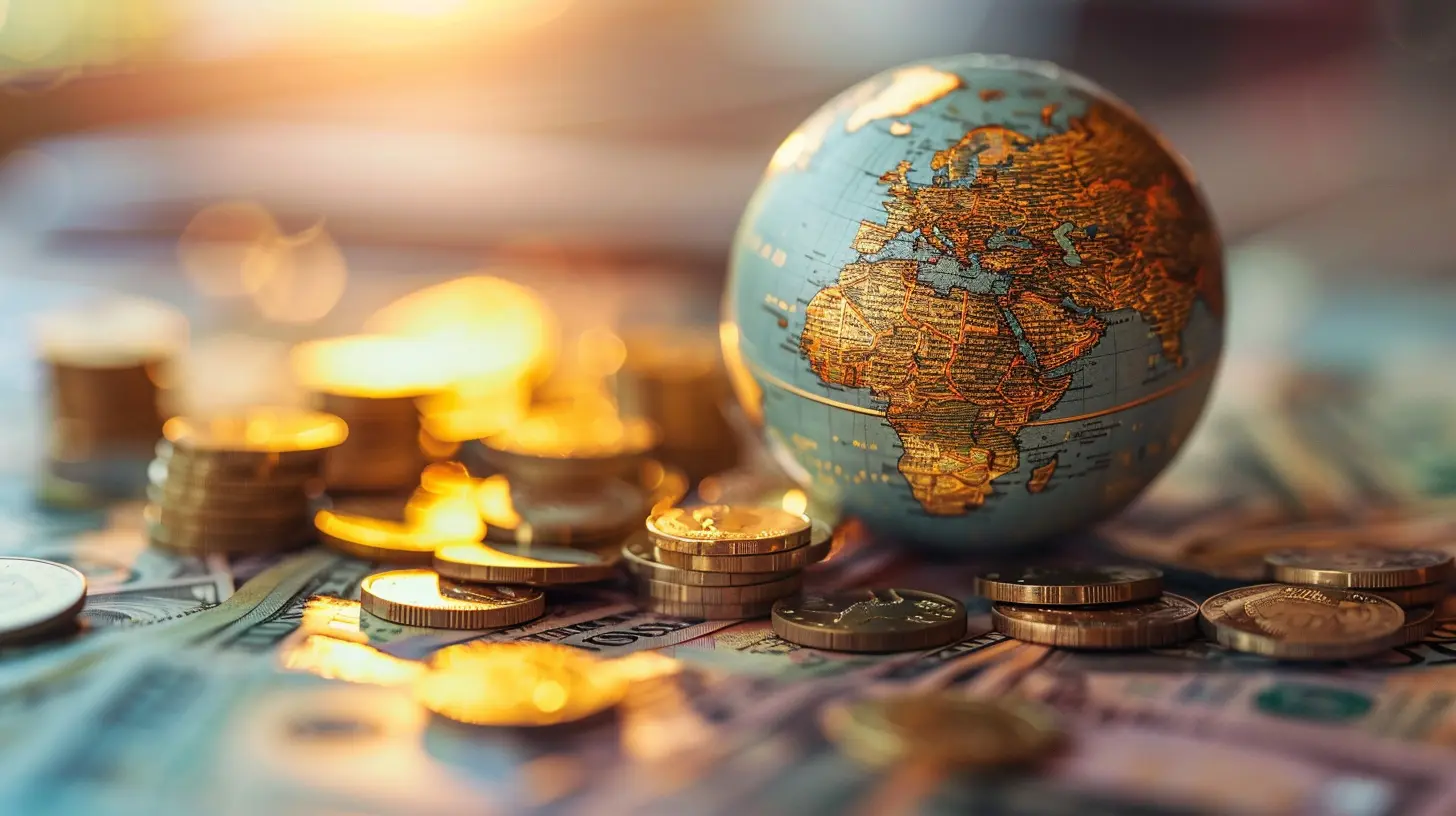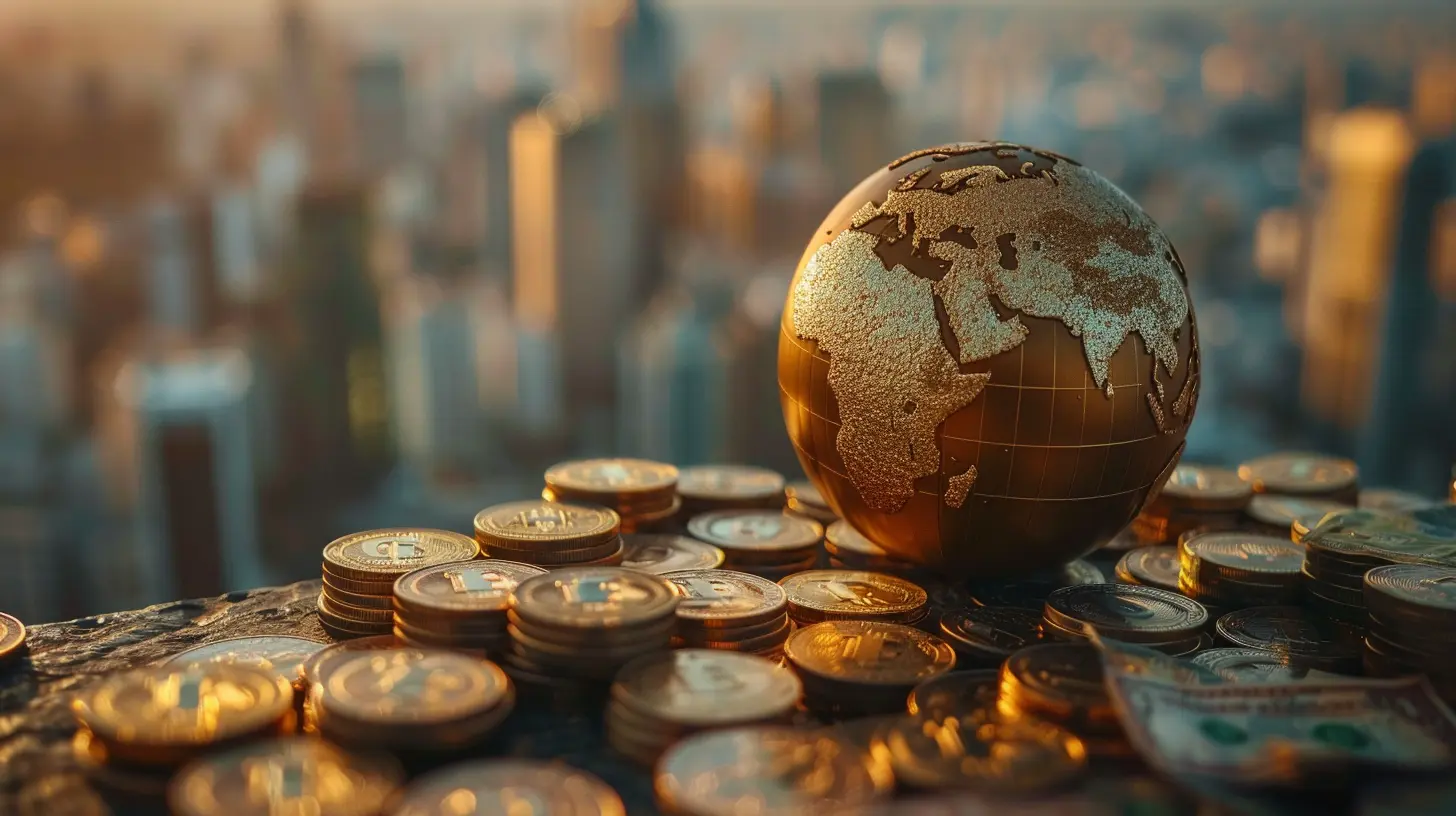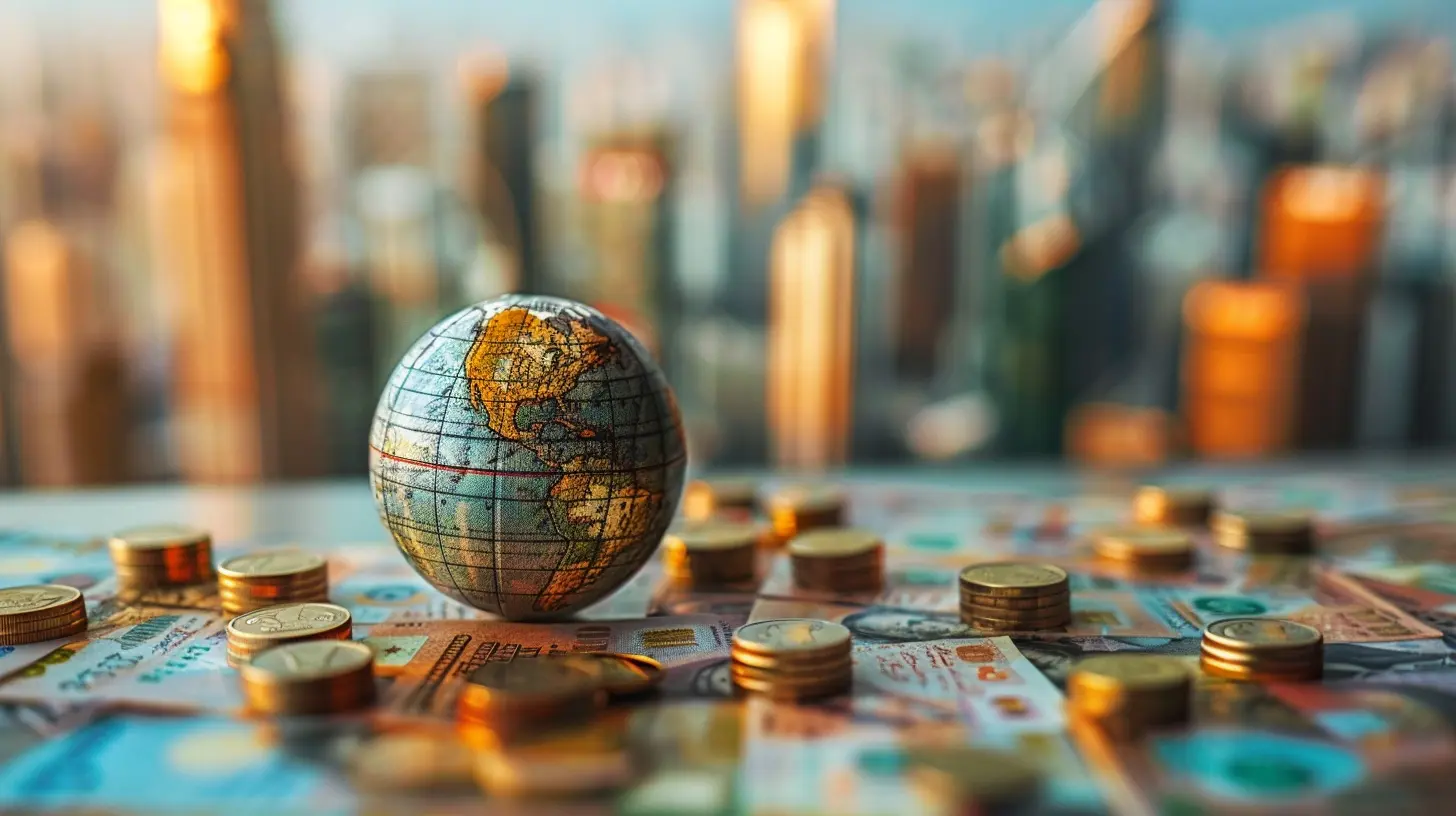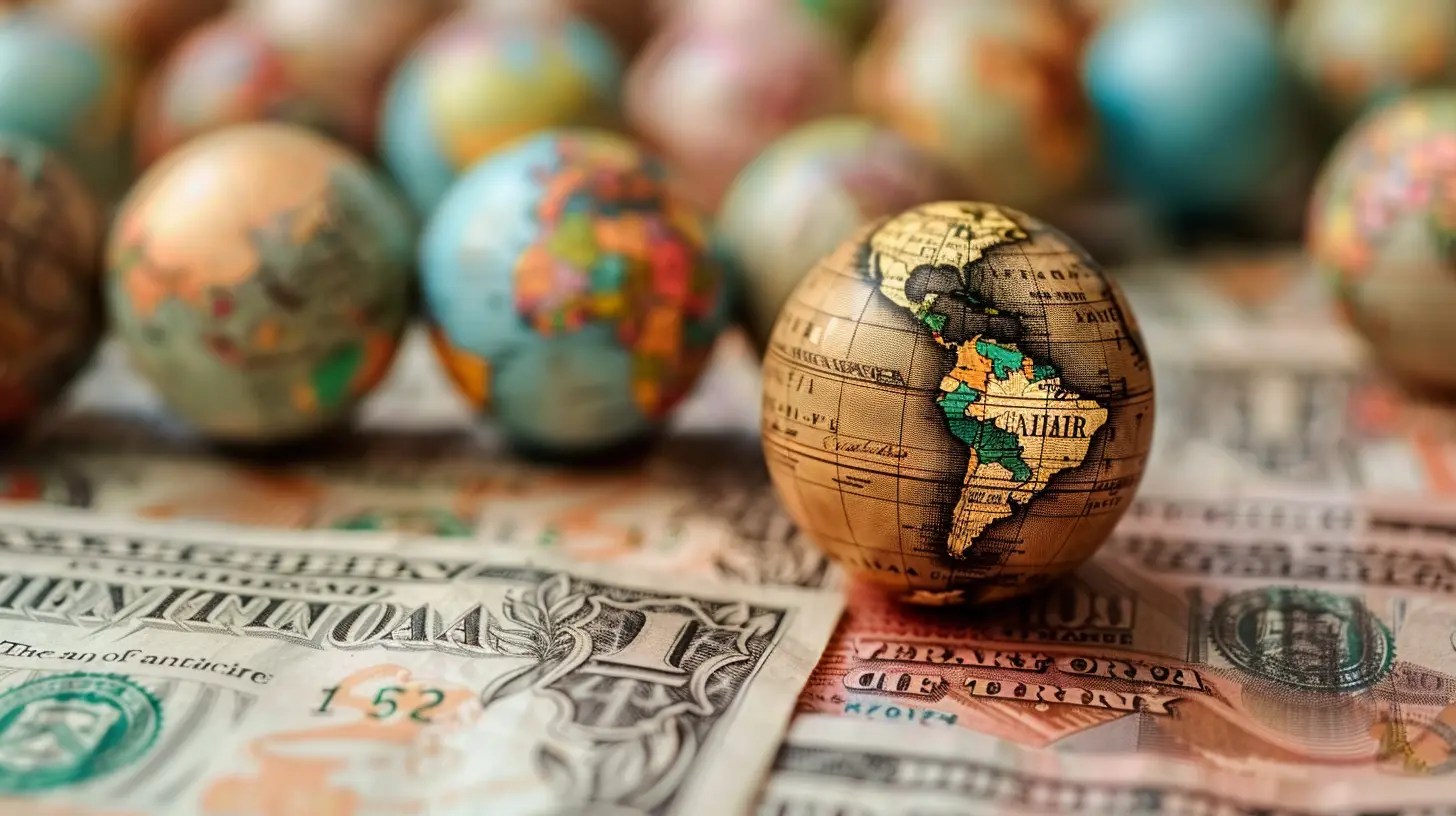How Global Inflation Trends Are Impacting Domestic Economies
29 June 2025
When someone brings up inflation, most of us immediately think about rising grocery bills or how a cup of coffee suddenly costs a small fortune. But inflation, especially on a global scale, is so much more than just annoying price hikes. It’s an economic ripple effect that can shake up economies worldwide, right down to our own wallets.
Let’s break down how global inflation trends are influencing domestic economies—and why you should care.
What Exactly Is Global Inflation?
Before we dive in, let’s make sure we’re all on the same page. Inflation, in simple terms, is the rate at which prices for goods and services rise. When we talk about global inflation, we're looking at how this price increase is happening across multiple countries at once.Now, this isn’t just a random coincidence. Global inflation can be triggered by international events that send shockwaves through supply chains, labor markets, and energy prices.
Take the COVID-19 pandemic, for example. When everything shut down, demand collapsed. Then, as economies reopened, demand soared—but supply couldn’t keep up. Boom: inflation. Add in a war here or a shipping delay there, and you’ve got all the ingredients for a worldwide price surge.
The Domino Effect of Global Inflation
So, how does something happening abroad impact your local economy? Think of global inflation like a giant domino setup. Once the first tile (a major global event) falls, it knocks down others—fast. Let’s look at the real-world impact this has on domestic economies.1. Rising Import Costs
Most countries import goods—whether it's oil, cars, electronics, or even food. If prices rise globally, your country has to pay more for these imports. And guess who ends up footing the bill? Yep, consumers like you and me.For example, when oil prices soar internationally, your domestic gasoline prices spike. And when fuel costs more, so does everything else—because transporting goods gets pricier.
2. Pressure on Central Banks
Central banks hate inflation. It's like that one uninvited guest who ruins every party. To cool things down, banks often raise interest rates. But here's the catch: doing that too aggressively can slow down economic growth.If inflation is being driven from abroad—by things your country can’t control—the central bank is stuck between a rock and a hard place. Do they raise rates and risk a recession? Or let inflation run wild?
It’s a tricky balance, and getting it wrong can have major consequences.
3. Currency Volatility
When inflation surges globally, investors get nervous. They move money around—sometimes out of your country and into more "stable" economies. This can tank your local currency’s value.A weaker currency means imports become even more expensive, fueling more inflation. You see where this is going? It’s a vicious cycle.
Global Trends That Are Driving Inflation
Let’s zoom out a bit. What’s driving inflation on a global scale in the first place? Here are a few major culprits.1. Supply Chain Disruptions
Remember that time you couldn’t find toilet paper? Multiply that by a thousand, and you’ll understand what supply chain disruptions look like globally. COVID-19, trade wars, and port blockages have created massive delays and shortages. When supply goes down and demand stays up, prices rise—it’s basic economics.2. Energy Price Shocks
Energy powers everything—literally. When oil or gas prices spike due to geopolitical tensions (like the Russia-Ukraine conflict), energy costs jump. That hikes up production, transportation, and ultimately retail prices. It’s like fuel for inflation—pun intended.3. Labor Shortages
Global labor shortages are also pushing wages up, especially in service-heavy economies. Businesses then pass those payroll costs onto consumers. So ironically, even as people earn more, their purchasing power can shrink.4. Climate Change
No, this isn’t just about melting glaciers. Climate change is affecting food production, damaging crops, and disrupting global supply chains. That pushes food prices through the roof, especially in countries that depend heavily on imports.
How Domestic Economies Are Taking the Hit
Every country responds differently to global inflation, depending on how healthy its economy was to begin with. Let’s unpack how domestic economies are reacting—and where they’re feeling the most pressure.1. Housing Markets
Higher interest rates (which are supposed to fight inflation) make mortgages more expensive. That cools down the housing market. But for homeowners, especially first-time buyers, it just means they’re getting squeezed from both sides—higher prices and rising loan costs.2. Consumer Spending
When prices soar, people tighten their belts. Spending drops, especially on non-essential items. That means businesses suffer, revenues fall, and layoffs aren’t far behind. It’s like a game of musical chairs—and someone’s always left standing.3. Government Budgets
Governments often subsidize things like fuel or food to keep prices stable. But when global prices rise, subsidies get expensive. That puts a strain on public finances, possibly leading to budget cuts in other areas like education or healthcare.Also, government borrowing gets costlier as interest rates rise, limiting how much public investment can happen. Infrastructure projects? Delayed. Social programs? Trimmed.
Emerging Markets: The Hardest Hit?
We’ve talked a lot about developed countries, but what about emerging economies? The truth is—they feel the burn even more.- Higher debt levels: Many of these countries borrow in U.S. dollars. When global inflation leads the Fed to raise interest rates, their debt becomes more expensive.
- Weaker currencies: As investors flee to "safe" assets like U.S. treasuries, emerging market currencies can plummet.
- Import dependence: Countries that rely heavily on food or energy imports really suffer when global prices rise.
It’s almost like trying to run a marathon with weights on your ankles.
Is This the New Normal?
That’s the million-dollar question. Are we in for a long period of high global inflation, or is this just a temporary blip?Well, it depends. Some drivers, like supply chain issues, may ease up. But others—like climate change and geopolitical instability—aren’t going away anytime soon.
Governments and central banks are trying to adapt. They're diversifying supply chains, investing in renewable energy, and exploring new monetary strategies. But these are long-term fixes.
In the meantime, consumers and businesses alike will have to navigate choppy economic waters, one challenging wave at a time.
What Can You Do About It?
We can’t control global inflation, but we can adapt. Here are a few tips:- Diversify your income: Don’t rely on a single job or industry. Side hustles can help cushion financial blows.
- Invest smartly: Inflation erodes savings. Consider assets that historically perform well during inflation, like stocks, real estate, or commodities.
- Budget tighter: Track your spending. Cut the fluff.
- Stay updated: Knowledge is power. Knowing how inflation trends are evolving can help you make better personal finance decisions.
Final Thoughts
Global inflation isn’t just some faraway economic theory—it’s in your gas bill, your grocery cart, and your paycheck (or lack thereof). It’s a complex beast, driven by everything from supply chains and oil prices to war and weather. And while governments and central banks are scrambling to tame it, the impact on domestic economies is all too real.Just remember: while we can’t change the global tide, we can learn to swim with it—smartly, calmly, and with eyes wide open.
all images in this post were generated using AI tools
Category:
Inflation ImpactAuthor:

Harlan Wallace
Discussion
rate this article
1 comments
Zaylee McKinnon
Global inflation trends are reshaping domestic economies significantly. Businesses and policymakers must adapt swiftly to mitigate risks and seize opportunities, ensuring sustainable growth in this volatile landscape.
July 16, 2025 at 4:19 AM

Harlan Wallace
Absolutely! Adapting to global inflation is crucial for businesses and policymakers alike to navigate challenges and harness opportunities for sustainable growth.


